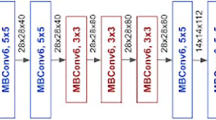Abstract
Nowadays, skin cancer became a common disease where every 3 in 100 people are affecting from skin cancer. Previously doctors used to detect the cancer efficiently, but nowadays they are unable to detect. So, there is a drastic demand for computer-based detection systems. Usually, computer detects skin cancer from dermoscopic images by using deep learning techniques. Many researchers used ML and DL techniques to detect skin cancer and to find accurate results. But they did not perform well for new images. In this paper, we added CNN model to predict the skin cancer along with that, we proposed a model called Meta Block which has metadata along with dermoscopy images of patients that includes all records of patients that helps in predicting the cancer more accurately. In this paper, we used two different datasets for skin cancer classification and we used 5 different models and compared the results with previous research results. We found that by comparing the accuracies are increased by 10% in ISIC 2019 Dataset and in HAM1000 Dataset it is increased by 15%.
Access this chapter
Tax calculation will be finalised at checkout
Purchases are for personal use only
Similar content being viewed by others
References
Alfi IA, Rahman MdM, Shorfuzzaman M, Nazir A (2022) A non-invasive interpretable diagnosis of melanoma skin cancer using deep learning and ensemble stacking of machine learning models. Diagnostics 12:726. https://doi.org/10.3390/diagnostics12030726
American Cancer Society (2018) Cancer facts and figures. Available: https://www.cancer.org/content/dam/cancer-org/research/cancer-factsand-statistics/annual-cancer-facts-and-figures/2018/cancer-facts-andfigures-2018.pdf. Accessed 15 Aug 2018
Bechelli S, Delhommelle J (2022) Machine learning and deep learning algorithms for skin cancer classification from dermoscopic images. Bioengineering 9:97. https://doi.org/10.3390/bioengineering9030097
Budhiman A, Suyanto S, Arifianto DA (2019) Melanoma cancer classification using ResNet with data augmentation. In: International seminar on research of information technology and intelligent systems (ISRITI), vol 4(123).
Demir A, Yilmaz F, Kose O (2019) Early detection of skin cancer using deep learning architectures. In: 2nd international congress on engineering and architecture, pp 1364–1329
Dildar M, Akram S, Irfan M, Khan HU, Ramzan M, Mahmood AR, Alsaiari SA, Saeed AHM, Alraddadi MO, Mahnashi MH (2022) Skin cancer detection: a review using deep learning techniques. Diagnostics 12:726
Fuadah YN, Pratiwi NKC, Pramudito MA, Ibrahim N (2020) Convolutional neural network (CNN) for automatic skin cancer classification system. IOP Conf Ser Mater Sci Eng 982:012005. https://doi.org/10.1088/1757-899X/982/1/012005
He K, Zhang X, Ren S, Sun J (2016) Deep residual learning for image recognition. In: Proceedings of the IEEE conference on computer vision and pattern recognition, pp 770–778
Hosny KM, Kassem MA, Foaud MM (2017) Skin cancer classification using deep learning and transfer learning. IBM J Res Dev 61:5:1–5:15
**nai S, Yamazaki N, Hirano Y, Sugawara Y, Ohe Y, Hamamoto R (2020) The development of a skin cancer classification system for pigmented skin lesions using deep learning. Biomolecules 10:1123. https://doi.org/10.3390/biom10081123
Jones T, Matin RN, van der Schaar M, Bhayankaram KP, Ranmuthu CKI, Islam MS, Behiyat D, Boscott R, Calanzani N, Emery J, Williams HC, Walte FM (2022) Artificial intelligence and machine learning algorithms for early detection of skin cancer in community and primary care settings. Lancet Digit Health 4. www.thelancet.com/digital-health
Manasa K, Murthy GV (2021) Skin cancer detection using VGG-16. Eur J Molecular Clin Med 08(01). ISSN 2515-8260
Manne R, Kantheti S, Kantheti S (2020) Classification of skin cancer using deep learning, convolutional neural networks. Int J Mod Trends Sci Technol 6(11):101–108
Mohamed A, Mohamed WA, Zekry AH (2019) Deep learning can improve early skin cancer detection. Int J Electron Telecommun 65
Montaha S, Azam S, Rafid AKMRH, Islam S, Ghosh P, Jonkman M (2022) A shallow deep learning approach to classify skin cancer using down-scaling method to minimize time and space complexity. https://doi.org/10.1371/journal.pone.0269826
Pacheco AGC, Krohling RA (2019) An attention-based mechanism to combine images and metadata in deep learning models applied to skin cancer classification. IEEE J Biomed Health Inform 25(9)
Saeed JN, Zeebaree SRM (2021) Skin lesion classification based on deep convolutional neural networks architectures. J Appl Sci Technol Trends 02(01):41–51. ISSN 2708-0757
Sa’idah S, Suparta IPYN, Suhartono E (2022) Modification of convolutional neural network GoogLeNet architecture with dull razor filtering for classifying skin cancer. Jurnal Nasional Teknik Elektro dan TeknologiInformasi 11(2)
Tabrizchi H, Parvizpour S, Razmara J (2020) An improved VGG model for skin cancer detection. Neural Process Lett (online). https://doi.org/10.1007/s11063-022-10927-1
Wen D, Khan SM, Xu AJ, Ibrahim H, Smith L, Caballero J, Zepeda L, de Blas Perez C, Denniston AK, Liu X, Matin RN (2022) Characteristics of publicly available skin cancer image datasets. Lancet Digit Health 4:e64–74
Yilmaz E, Trocan M (2021) A modified version of GoogLeNet for melanoma diagnosis. J Inform Telecommun 5(3):395–405. https://doi.org/10.1080/24751839.2021.1893495.
Author information
Authors and Affiliations
Corresponding author
Editor information
Editors and Affiliations
Rights and permissions
Copyright information
© 2024 The Author(s), under exclusive license to Springer Nature Singapore Pte Ltd.
About this paper
Cite this paper
Devarakonda, N., Murthy, M.V.R., Reddy, R.R.C., Shree Harsha, P.B.L. (2024). Skin Cancer Detection with Metadata Using Deep Learning Strategies. In: Shetty, N.R., Prasad, N.H., Nagaraj, H.C. (eds) Advances in Communication and Applications . ERCICA 2023. Lecture Notes in Electrical Engineering, vol 1105. Springer, Singapore. https://doi.org/10.1007/978-981-99-7633-1_16
Download citation
DOI: https://doi.org/10.1007/978-981-99-7633-1_16
Published:
Publisher Name: Springer, Singapore
Print ISBN: 978-981-99-7632-4
Online ISBN: 978-981-99-7633-1
eBook Packages: EngineeringEngineering (R0)




